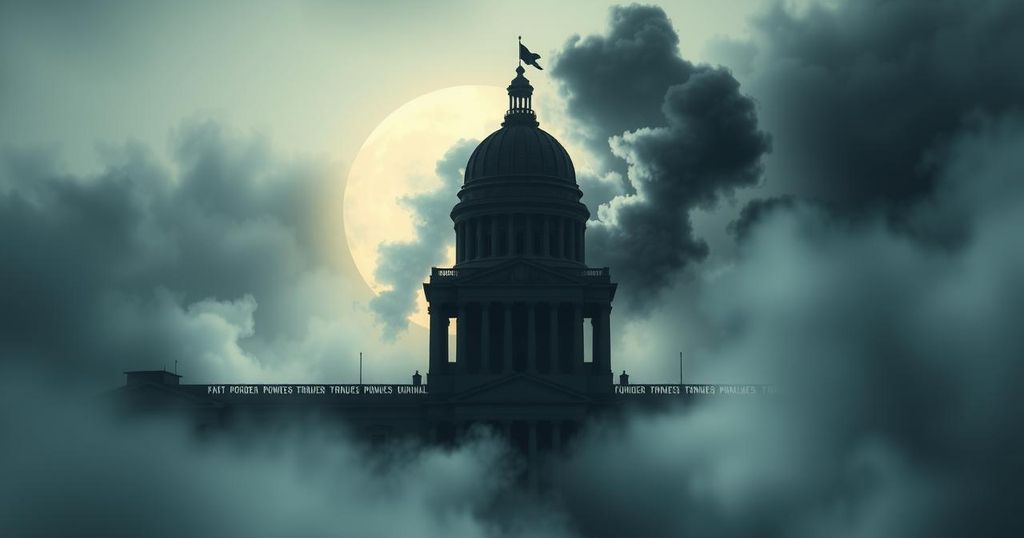Colombia’s President Gustavo Petro has invoked emergency powers to address rising violence in the Catatumbo region, leading to 32,000 displacements. The conflict involves ELN and FARC dissidents vying for control over drug routes. Rights groups have expressed alarm over civilian safety and humanitarian access amid intensified military action.
Colombia’s President Gustavo Petro has declared a state of emergency, granting himself expansive powers to tackle escalating violence in the Catatumbo region, which borders Venezuela. The move comes in response to intense clashes since January between the National Liberation Army (ELN) and dissident factions of the Revolutionary Armed Forces of Colombia (FARC), resulting in over 80 deaths and the displacement of more than 32,000 individuals, according to rights organizations.
Petro’s decree empowers him to impose curfews and restrict movement for up to 270 days without congressional approval, aiming to quell the violence and restore order to this conflict-ridden area. The government has deployed thousands of military personnel to Catatumbo while suspending peace negotiations with the ELN due to rising hostilities.
The ongoing conflict in the region stems from competition over lucrative drug trafficking routes, prompting armed groups to engage in violent confrontations. Civilians have been significantly affected; many have fled their homes under threat of violence, with reports of door-to-door assaults from armed groups.
International organizations, including Amnesty International and the United Nations, have issued urgent calls for the protection of civilians and the need for humanitarian access. Displaced families, including those with young children, face uncertain futures, often fleeing with only minimal belongings as they seek refuge in neighboring areas such as Norte de Santander.
Amidst the turmoil, residents like Zilenia Pana describe the harrowing experiences of violence, stating, “Seeing the dead bodies was sad, painful. That breaks your soul, your heart.” This sentiment underscores the desperate situation people face, as many hope for an end to the fighting so they can return to their homes safely.
Colombia has faced long-standing internal conflict involving guerrilla groups, paramilitaries, and the state for decades. The recent violence in the Catatumbo region reflects ongoing struggles for territorial control, particularly over drug trafficking routes. As various factions, including the ELN and splinter groups from FARC, vie for dominance, the local civilian population becomes increasingly vulnerable. The government’s attempts at negotiation and peace efforts have met with challenges, leading to increased military action and emergency measures.
In summary, Colombia’s declaration of emergency powers aims to address the alarming violence in the Catatumbo region amid an ongoing humanitarian crisis. This situation highlights the complexities of Colombia’s internal conflict and the dire need for effective measures to protect civilians and stabilize the area. Despite political promises of achieving peace, the reality remains grim for many families forced to flee their homes, prompting urgent international concern.
Original Source: www.aljazeera.com






